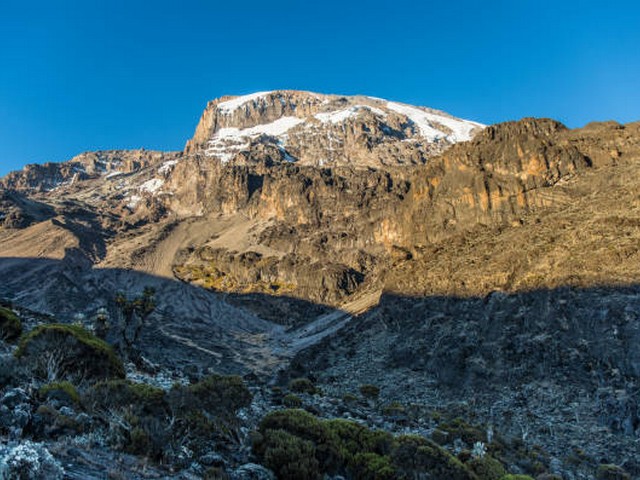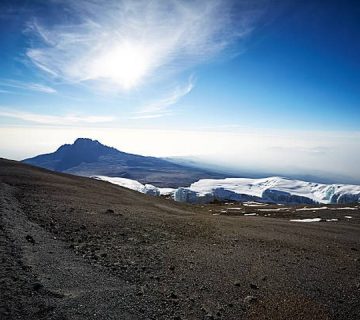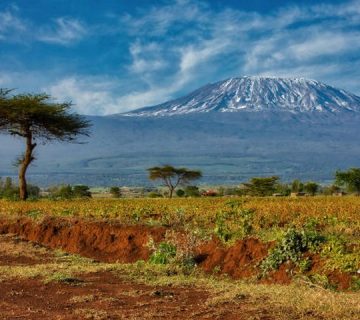Tips For A Zero-Waste Kilimanjaro Trek: Embrace Sustainability While Reaching New Heights
Standing majestically as Africa’s highest peak, Mount Kilimanjaro beckons adventurers from around the globe to conquer its summit. But as we lace up our boots in anticipation of this monumental climb, it’s crucial to remember the impact our journey can have on this pristine ecosystem. Here at the Kilimanjaro Centre for Trekking and Ecotourism (KCTE), we advocate for a zero-waste approach to trekking. By following a few key guidelines, you can help preserve Kilimanjaro’s beauty for future generations while enjoying a truly transformative experience.
Why Zero-Waste?
Zero-waste practices are essential in conserving the natural environments of popular tourist destinations like Kilimanjaro. The philosophy behind a zero-waste trek is simple yet profound: leave no trace. This ensures that the breathtaking landscapes and diverse wildlife that make Kilimanjaro unique are maintained in their natural state, free from the detriments of human waste and pollution.
Preparing for Your Zero-Waste Climb
Gear Up Sustainably
When preparing for your climb, choosing sustainable gear is the first step. Opt for products made from recycled materials and support brands committed to environmental responsibility. Remember, a true zero-waste journey begins with what you pack. Reusable water bottles, solar-powered gadgets, and biodegradable soaps are must-haves.
Pack Smart, Pack Light
Efficient packing reduces the likelihood of waste. Pack only what you need but ensure you are well-prepared for the varying climates of Kilimanjaro. Lightweight, multipurpose clothing and gear can significantly cut down the amount of waste generated during your trek.
On the Trail: Zero-Waste Practices
Be Mindful of What You Pack In and Pack Out
Everything you bring to Kilimanjaro should leave with you. This includes wrappers, broken gear, and spent batteries. Segregate waste into organics, recyclables, and trash. Consider packing a small bag specifically for collecting waste as you trek.
Choose Eco-friendly Meal Options
At KCTE, we provide climbers with healthy, locally-sourced, and organic meal options that are packed with minimal packaging. We encourage trekkers to avoid single-use plastics and opt for meals that generate the least amount of waste.
Use Water Wisely
Water conservation is crucial on Kilimanjaro. Use water sparingly and avoid contaminating water sources with soaps or waste. A good tip is to use a water filter or purifying tablets instead of buying bottled water.
Engage with and Respect Local Cultures
Understanding and respecting the local Chagga community around Kilimanjaro enriches your trekking experience. Engage with locals in an eco-friendly manner by supporting local businesses and services that adhere to sustainable practices. This not only boosts the local economy but also promotes cultural exchange and sustainability.
After the Trek: Continuing the Zero-Waste Journey
Reflect and Share
Once you descend, take time to reflect on your journey and the impact of your zero-waste practices. Share your experiences and learnings with fellow climbers and through online platforms to inspire more people to adopt sustainable trekking behaviors.
Support Conservation Initiatives
Contribute to conservation efforts by donating to projects dedicated to preserving Kilimanjaro’s environment. This can be a monetary donation or volunteering for conservation projects. Every little bit helps in keeping Kilimanjaro pristine.
Dispose Responsibly
If you have waste that wasn’t disposed of during the trek, make sure to dispose of it responsibly once you’re back in civilization. KCTE can advise on the best practices for disposing of different types of waste products.
Summary and Call-to-Action
Embarking on a zero-waste trek to Mount Kilimanjaro is more than just an adventure; it’s a commitment to preserving one of the earth’s most awe-inspiring landscapes. At Kilimanjaro Centre for Trekking and Ecotourism (KCTE), we are dedicated to ensuring every climber has the resources and knowledge needed to minimize their footprint.
Are you ready to take on the challenge of a zero-waste trek to Kilimanjaro? Let KCTE guide you to the summit with sustainable practices that protect the environment and enrich your experience. Book your Kilimanjaro climbing adventure with us today and take the first step towards a greener, cleaner trekking experience!
FAQs
How can I ensure my gear is sustainable?
Look for outdoor gear from brands that are committed to sustainability, using recycled materials and low-impact manufacturing processes.
What should I do if I find litter on the trail?
It’s a great practice to pick up any litter you find along the trail, as long as it is safe to do so. Pack it out and dispose of it properly when you can.
Can I make my Kilimanjaro trek completely zero-waste?
While completely zero-waste is challenging, it is possible to significantly minimize your waste with careful planning and by following the practices outlined above.
How does KCTE support zero-waste practices?
KCTE supports zero-waste practices by providing eco-friendly gear suggestions, planning meals with minimal waste, and offering guidance on sustainable actions throughout the trek. We also run awareness and clean-up initiatives to preserve Kilimanjaro’s environment.
Embrace the journey of a lifetime and make a positive impact with every step you take on Mount Kilimanjaro. Join us in our zero-waste mission and experience the majestic beauty of Kilimanjaro responsibly.




